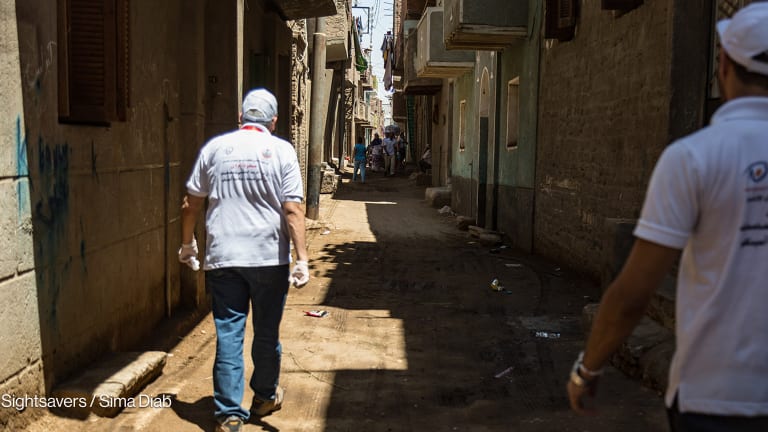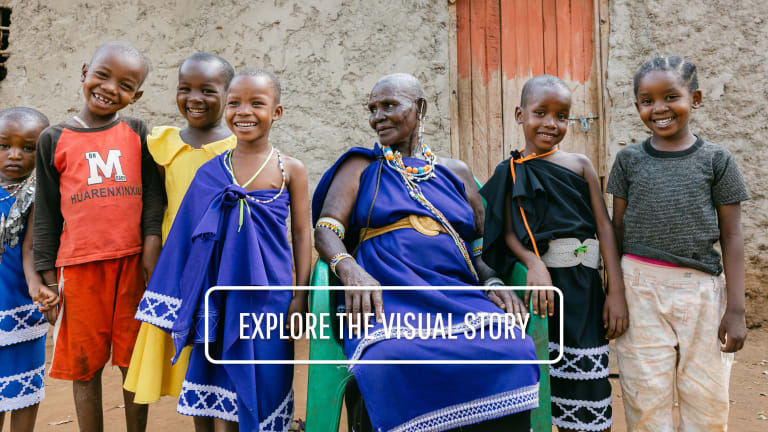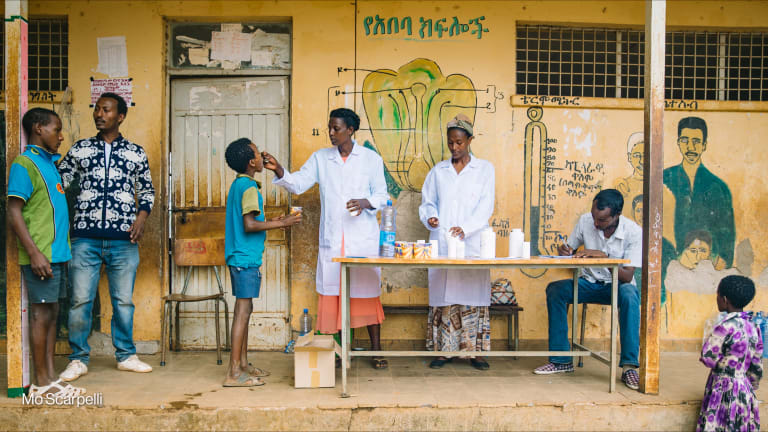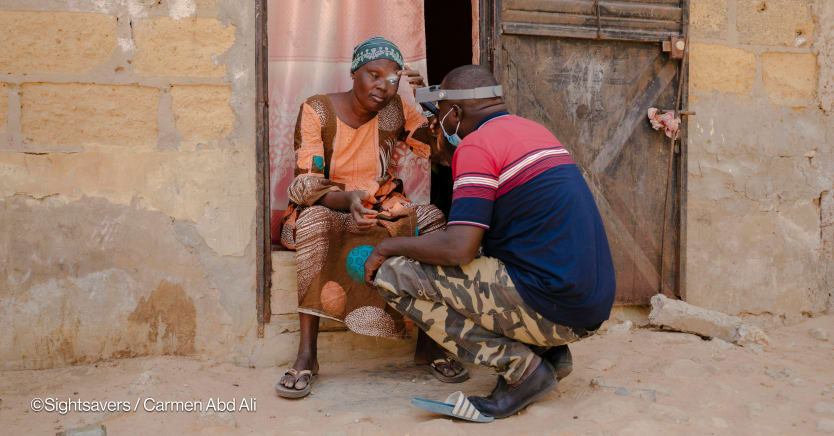
In a significant milestone in the fight to end neglected tropical diseases, or NTDs, the World Health Organization has officially recognized Burundi and Senegal for eliminating trachoma as a public health problem — making them the 24th and 25th countries globally to achieve this milestone, respectively. The news also marks Burundi’s first elimination of an NTD and Senegal’s second, following its elimination of dracunculiasis, or Guinea-worm disease, transmission in 2004.
Trachoma — one of 21 preventable and curable diseases considered neglected — is the world’s leading infectious cause of avoidable blindness. The eye disease, caused by the bacterium Chlamydia trachomatis, impacts people in the world’s poorest and most remote areas, where inadequate hygiene, crowded households, poor sanitation, and lack of access to water all increase people’s risk. Repeated infections — which can be spread through personal contact or by flies in contact with infected individuals — can lead to permanent visual impairments and blindness.
Mapping the burden
Trachoma is targeted for elimination as a public health threat as part of the WHO road map for NTDs 2021-2030, a cornerstone of which is the SAFE strategy in countries where the disease is endemic. The SAFE strategy incorporates four elements: surgery for trachomatous trichiasis — a condition of trachoma where eyelashes rub against the eyeball; antibiotics for clear ocular Chlamydia trachomatis infection; facial cleanliness; and environmental improvements, particularly access to clean water and basic sanitation.
In Senegal, trachoma has been documented since the early 1900s, with surveys conducted in the 1980s and 1990s later confirming the disease as a significant cause of blindness. After joining the WHO Alliance for the Global Elimination of Trachoma in 1998, the country conducted further surveys in 2000 and completed full disease mapping by 2017.
By integrating trachoma control initiatives into the national eye health program and implementing the SAFE strategy, the Senegalese government successfully treated 2.8 million people across 24 districts. A combination of activities included surgery, mass drug administration of the antibiotic azithromycin donated by Pfizer, and public awareness campaigns on water supply and sanitation.
Long-term partners such as the International Trachoma Initiative of The Task Force for Global Health and Sightsavers — which worked alongside the Senegalese Ministry of Health to distribute over 4.2 million doses of antibiotics, provide 30,000 operations for patients, and train 45 trachoma surgeons across the country — helped to significantly reduce the burden of trachoma and pave the way for elimination.
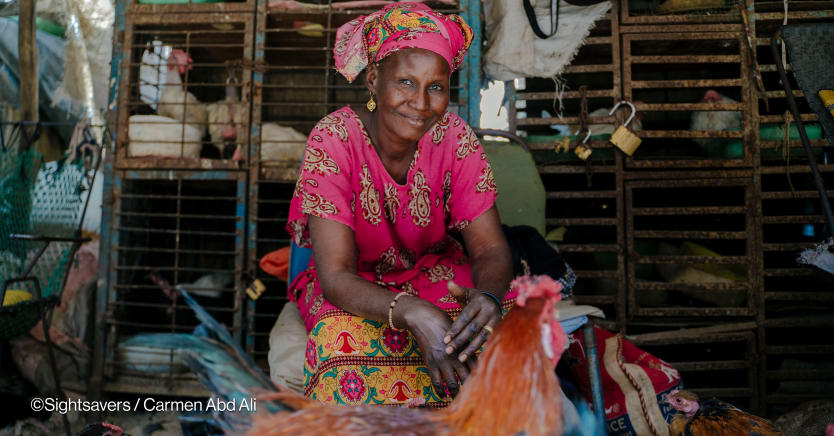
This strategy proved equally effective in Burundi, where before 2007, there were no reported cases or epidemiological studies of trachoma. But a countrywide, integrated mapping of several NTDs — including soil-transmitted helminthiases, schistosomiasis, lymphatic filariasis, and trachoma — as part of the Burundian Ministry of Health’s NTD Control Program fieldwork led to further investigations. Between 2009 and 2010, baseline surveys revealed trachoma was endemic in 12 districts across the country, affecting some 2.5 million people.
With the help of cross-sector partners — including the END Fund, WHO, and the Christian Blind Mission — and donated medicines from Pfizer, the government rolled out mass drug administration programs to great effect. Fixed and mobile distribution sites led to high therapeutic coverage, treating residents who visited local health centers as well as schoolchildren and remote communities.
By 2021, new baseline surveys showed promising results: Low prevalence rates of trachoma were in line with criteria for claiming elimination status.
Following both countries’ validations this month, WHO will continue working with the Burundian and Senegalese governments to monitor previously endemic communities and avoid a resurgence of the disease.
Progress in the pipeline
Significant progress has been made in the fight against trachoma globally, too, with the number of people requiring antibiotic treatment in WHO’s African region falling from 189 million in 2014 to 93 million as of April 2024. Yet an estimated 103 million people around the world still live in areas requiring interventions against the disease.
Burundi and Senegal’s milestones offer a beacon of hope for the more than 30 countries where trachoma remains a public health concern, highlighting the impact and effectiveness of nationwide monitoring, sustained partnerships, and government leadership in achieving 2030 objectives — not just for trachoma, but for all NTDs.
As Dr. Xavier Crespin, WHO’s representative in Burundi, said: “This win inspires us to press forward with the same determination to eliminate all remaining neglected tropical diseases.”
Visit Escape the Neglect — a series exploring the extraordinary progress that countries are making in eliminating neglected tropical diseases, or NTDs, and showcasing promising opportunities to build on recent wins.
This content is part of our Escape the Neglect series. Click here to learn more.
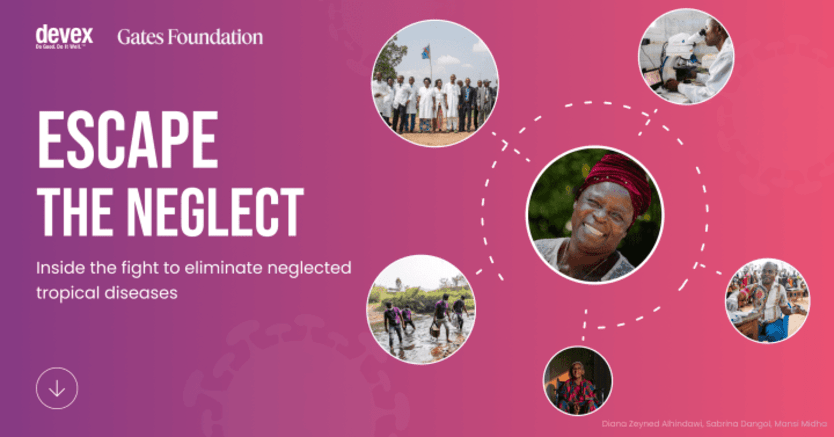
Search for articles
Most Read
- 1
- 2
- 3
- 4
- 5





